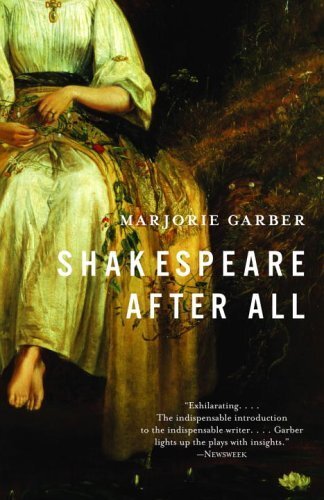What do you think?
Rate this book


989 pages, Paperback
First published January 1, 2004
Remember the last time you read a work of literary criticism and actually understood it? The tide has changed with Shakespeare After All. Forgoing cultural studies jargon for an eclectic approach that draws from gender studies, post-colonial theory, and Elizabethan stage history, Garber focuses on close, erudite readings of the Bard's work. Comparing her tome to Harold Bloom's Shakespeare: The Invention of the Human (1998), critics agree that Garber is more readable and enjoyable; Stephen Greenblatt's Will in the World (**** Nov/Dec 2004) will give her a run for the money, however. A few reviewers wondered why Garber omitted discussion of Shakespeare's sonnets and poems; others criticized the book's significant length. Yet, until "somebody even smarter than Garber comes along with a 1,200-pager, this is the indispensable introduction to the indispensable writer" (Newsweek).
This is an excerpt from a review published in Bookmarks magazine.
